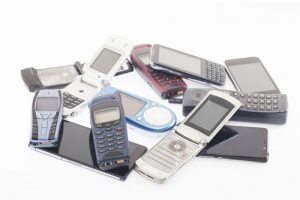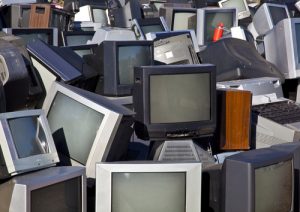 Fearing a veto from the governor, Illinois stakeholders are attempting to iron out last-minute changes to legislation that would reshape the state’s e-scrap law by requiring manufacturers to fund recycling of all covered material collected through the program.
Fearing a veto from the governor, Illinois stakeholders are attempting to iron out last-minute changes to legislation that would reshape the state’s e-scrap law by requiring manufacturers to fund recycling of all covered material collected through the program.


 Millions of electronics sit unused in Wisconsin homes, according to a report from the state’s e-scrap program, and awareness of recycling options is growing.
Millions of electronics sit unused in Wisconsin homes, according to a report from the state’s e-scrap program, and awareness of recycling options is growing.  An e-scrap group that advocates for exports of used electronics has detailed a new mechanism for funding e-scrap collection in an area of the world that has long been perceived as a materials dumping ground.
An e-scrap group that advocates for exports of used electronics has detailed a new mechanism for funding e-scrap collection in an area of the world that has long been perceived as a materials dumping ground. A bill advancing in the Washington state legislature blacklists e-scrap processors that twice violate state program rules. It also requires the disclosure of prices processors charge.
A bill advancing in the Washington state legislature blacklists e-scrap processors that twice violate state program rules. It also requires the disclosure of prices processors charge. A Basel Action Network project that followed the trail of broken devices didn’t just lead to a loss of certification for one company – it also prompted an entire state program to take action, recent analysis shows.
A Basel Action Network project that followed the trail of broken devices didn’t just lead to a loss of certification for one company – it also prompted an entire state program to take action, recent analysis shows. An electronics manufacturers group is holding a contest to spur research into electronics and applicance recovery in the U.K.
An electronics manufacturers group is holding a contest to spur research into electronics and applicance recovery in the U.K.  TVs dominate the end-of-life stream in Washington state now more than ever. They just don’t look like they used to, with fewer CRT devices and more flat-panel displays coming in the door.
TVs dominate the end-of-life stream in Washington state now more than ever. They just don’t look like they used to, with fewer CRT devices and more flat-panel displays coming in the door. Best Buy has announced it will begin charging for TVs and computer monitors customers bring into the company’s stores for recycling.
Best Buy has announced it will begin charging for TVs and computer monitors customers bring into the company’s stores for recycling.